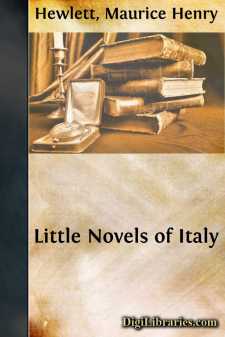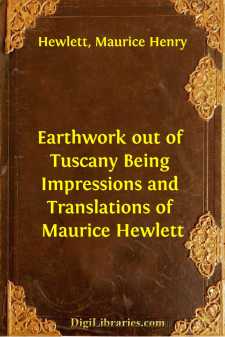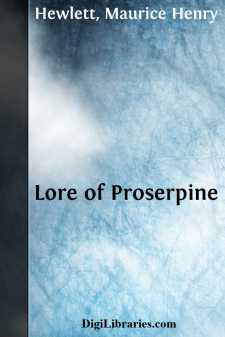Categories
- Antiques & Collectibles 13
- Architecture 36
- Art 48
- Bibles 22
- Biography & Autobiography 813
- Body, Mind & Spirit 142
- Business & Economics 28
- Children's Books 17
- Children's Fiction 14
- Computers 4
- Cooking 94
- Crafts & Hobbies 4
- Drama 346
- Education 46
- Family & Relationships 57
- Fiction 11829
- Games 19
- Gardening 17
- Health & Fitness 34
- History 1377
- House & Home 1
- Humor 147
- Juvenile Fiction 1873
- Juvenile Nonfiction 202
- Language Arts & Disciplines 88
- Law 16
- Literary Collections 686
- Literary Criticism 179
- Mathematics 13
- Medical 41
- Music 40
- Nature 179
- Non-Classifiable 1768
- Performing Arts 7
- Periodicals 1453
- Philosophy 64
- Photography 2
- Poetry 896
- Political Science 203
- Psychology 42
- Reference 154
- Religion 513
- Science 126
- Self-Help 84
- Social Science 81
- Sports & Recreation 34
- Study Aids 3
- Technology & Engineering 59
- Transportation 23
- Travel 463
- True Crime 29
Little Novels of Italy
Categories:
Description:
Excerpt
VANNA IS BID FOR
Not easily would you have found a girl more winning in a tender sort than Giovanna Scarpa of Verona at one and twenty, fair-haired and flushed, delicately shaped, tall and pliant, as she then was. She had to suffer her hours of ill report, but passes for near a saint now, in consequence of certain miracles and theophanies done on her account, which it is my business to declare; before those she was considered (if at all) as a girl who would certainly have been married three years ago if dowries had not been of moment in the matter. In a city of maids as pretty as they are modest—which no one will deny Verona to be—there may have been some whose charms in either kind were equal to hers, while their estate was better in accord; but the speculation is idle. Giovanna, flower in the face as she was, fit to be nosegay on any hearth, posy for any man's breast, sprang in a very lowly soil. Like a blossoming reed she shot up to her inches by Adige, and one forgot the muddy bed wondering at the slim grace of the shaft with its crown of yellow atop. Her hair waved about her like a flag; she should have been planted in a castle; instead, Giovanna the stately calm, with her billowing line, staid lips, and candid grey eyes, was to be seen on her knees by the green water most days of the week. Bare-armed, splashed to the neck, bare-headed, out-at-heels, she rinsed and pommelled, wrung and dipped again, laughed, chattered, flung her hair to the wind, her sweat to the water, in line with a dozen other women below the Ponte Navi; and if no one thought any the worse of her, none, unhappily, thought any the better—at least in the way of marriage. It is probable that no one thought of her at all. Giovanna was a beauty and a very good girl; but she was a washerwoman for all that, whose toil fed seven mouths.
Her father was Don Urbano, curate of Santa Toscana across the water. This may very easily sound worse than it is. In Don Urbano's day, though a priest might not marry, he might have a wife—a faithful, diligent companion, that is—to seethe his polenta, air his linen, and rear his children. The Church winked at her, and so continued until the Jesuits came to teach that winking was unbecoming. But when Can Grande II. lorded in Verona the Jesuits did not, and Don Urbano, good, easy man, cared not who winked at his wife. She gave him six children before she died of the seventh, of whom the eldest was Giovanna, and the others, in an orderly chain diminishing punctually by a year, ran down to Ferrantino, a tattered, shock-headed rascal of more inches than grace. Last of all the good drudge, who had borne these and many other burdens for her master, died also. Don Urbano was never tired of saying how providential it was that she had held off her demise until Giovanna was old enough to take her place. The curate was fat and lazy, very much interested in himself; his stipend barely paid his shot at the "Fiore del Marinajo," under whose green bush he was mostly to be seen....












